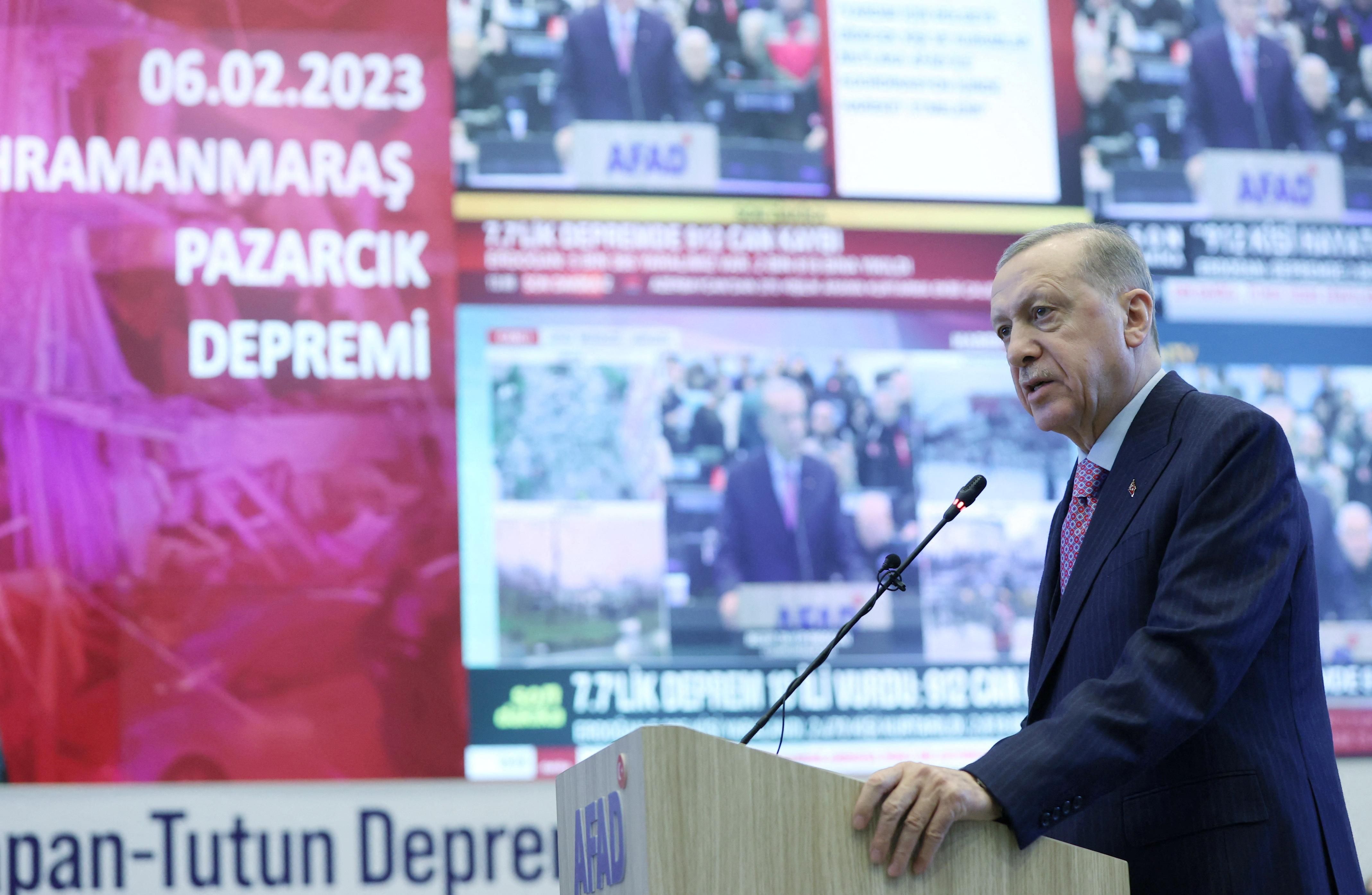Turkey and Syria are reeling in the wake of Monday's 7.8-magnitude earthquake and subsequent aftershocks that claimed the lives of at least 5,000 people and left thousands more injured. It's the worst tremor to hit the region since 1999, when some 17,500 perished in the northeastern Turkish city of İzmit near Istanbul.
While offers of international aid pour in and rescue teams work around the clock to find survivors, one person wants to be seen as being firmly in command and on top of the recovery effort in Turkey: President Recep Tayyip Erdoğan.
After all, it’s an election year with very high stakes for him. Ahead of the May 14 presidential vote, Erdoğan’s reelection bid remains too close to call in the polls as he faces the biggest challenge to his leadership since he came to power 20 years ago, first as PM and later as president.
What's more, failing to rise to the moment amid a large-scale natural disaster can be a political death knell in Turkey.
Erdoğan knows he can’t have a repeat of 1999, when then-PM Bülent Ecevit bungled an even bigger disaster. His coalition government's inept and slow response to the İzmit quake was followed by a corruption scandal linked to licenses given to collapsed buildings – and later by the economic fallout of the tremor hitting heavily populated areas packed with businesses close to Istanbul.
The whole mess made Turks sour on mainstream parties; in 2002, citizens came out in droves to vote for Erdoğan’s upstart Justice and Development Party, which won that election and has remained in power ever since.
In sharp contrast, the president now wants to be perceived as a hands-on crisis manager. He can't afford to slip up as he did in the summer of 2021, when Erdoğan’s government looked ill-equipped to deal with the worst wildfires in Turkey's history and initially snubbed offers of international help.
The ruling party will benefit from a robust crisis response in the quake-hit areas as long as Erdoğan remains “visible on the ground and maintains momentum until the polls with not only immediate aid but also long-term reconstruction pledges," says Eurasia Group analyst Emre Peker.
Meanwhile, there's not much his rivals can do to stop Erdoğan from scoring political points on disaster management.
"The opposition's hands are tied," Peker adds. "The best they can do is mobilize aid and support government efforts." Otherwise, the president might (rather cynically) accuse them of politicizing the catastrophe.
Turkey’s leader will also step up his diplomatic game. Somewhat out of character for the famously pugnacious Erdoğan, it’s unlikely he will now want to pick even more fights with Sweden over its already stalled NATO bid, with eternal rival Greece over maritime sovereignty in the eastern Mediterranean, or with Kurdish militants over, well, being Kurdish militants.
"The devastating earthquakes will give Erdoğan an opening to engage with allies and testy neighbors alike in a positive manner,” Peker explains. “He will likely use it to support his foreign-policy balancing act."
Finally, this is not only a Turkey problem. The tremor also devastated vast swaths of the mostly opposition-held area on the Syrian side of the border, where the local infrastructure has been decimated by 11 years of civil war and millions of internally displaced Syrians live in squalid camps.
But there's a silver lining. After more than a decade of backing forces against Bashar al-Assad, and launching four cross-border operations against Kurdish militants in northern Syria, Erdoğan recently turned heads by announcing he was willing to meet the Syrian dictator to talk peace.
Now that Assad's army — supported by Iran and Russia — has reclaimed a large part of the territory once held by the opposition, both sides seem open to accepting the facts on the ground and moving on. (It helps that Erdoğan and Assad have a mutual interest in keeping Syrian Kurds at arm's length.)
"Erdoğan had already greenlit engagement with Syria, under Russian auspices, to normalize relations with Damascus," Peker says. The quake offers "a convenient reason for Ankara to accelerate that effort and segue into a leaders' meeting as Turkey and Syria show solidarity in the face of a humanitarian catastrophe."
